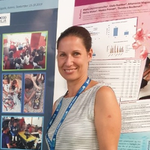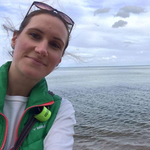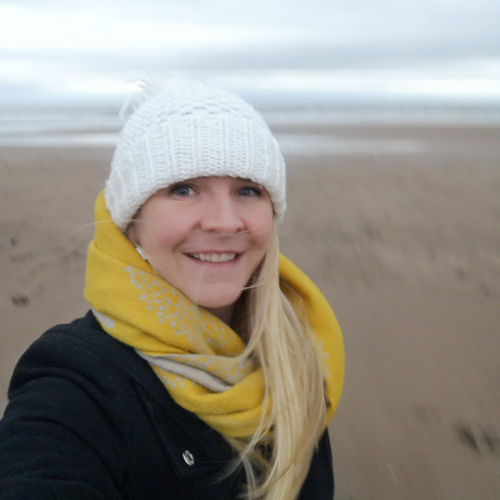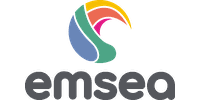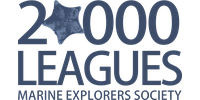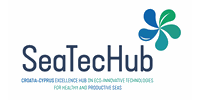EMSEA 2024 will take place in Zadar, Croatia. Zadar is a 3000-year-old city situated in the middle of the eastern Adriatic coastline, and according to Alfred Hitchcock, it's a city with the most beautiful sunset in the world. The conference host will be the University of Zadar (UNIZD), a member of the European University for Smart Urban Coastal Sustainability (EU-CONEXUS) alliance. The conference will be co-organized by UNIZD and the NGO Marine Explorers Society - 20.000 leagues, both working together as the pioneers of ocean literacy in Croatia.
Join us in Zadar this September, enjoy the essence of the Mediterranean lifestyle and tradition, Zadar's sunset and sea organs, and (re)discover your connection with the ocean in this unique part of the one big ocean – the Adriatic Sea.
The program will consist of presentations and workshops on the following topics:
- Ocean literacy and the blue economy
- Inclusive ocean literacy
- Ocean literacy and education
- Ocean literacy and natural sciences
- Ocean literacy beyond natural sciences
- Ocean literacy and academia
- Ocean literacy research
- Ocean literacy and water sports
- Open session
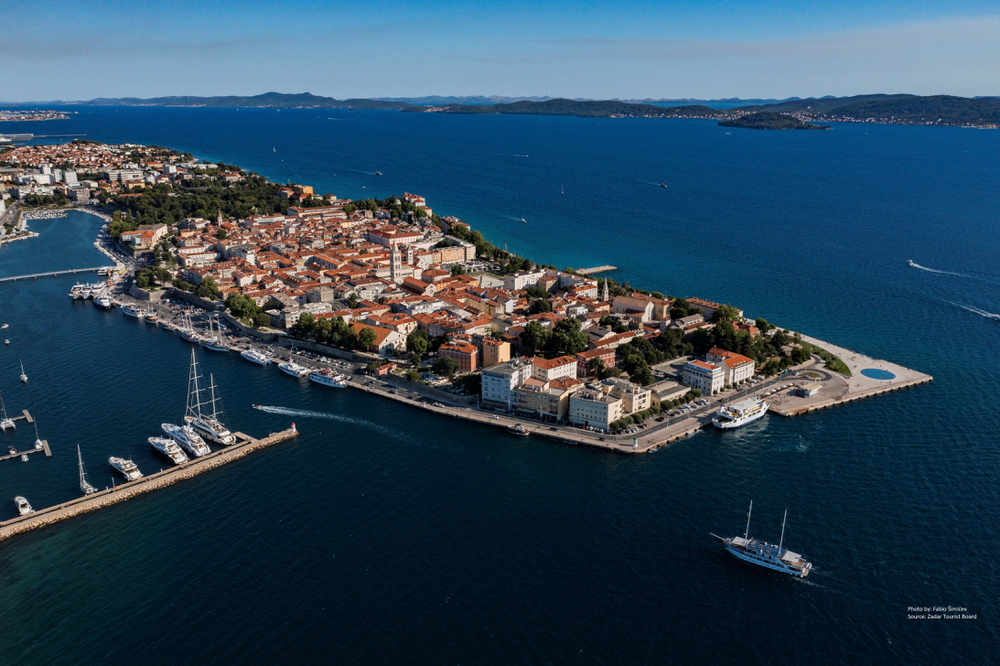
Call for abstracts
Abstract submissions are accepted until 15 May
EMSEA 2024 calls for abstract submissions for oral (10 minutes), poster presentations, and workshops on the following themes:
Abstract Themes
- OCEAN LITERACY AND BLUE ECONOMY
Ocean literacy is essential for the success of the sustainable blue economy, as it equips individuals and stakeholders with the knowledge needed to make informed decisions about sustainable resource utilization, conservation, and
economic development. In this session, we look for abstracts showcasing different practices and initiatives that align the economic potential of the ocean with a profound understanding of their ecosystems, fostering sustainable blue
economy and responsible resource management. Some examples are integration of ocean literacy principles into blue economy strategies, case studies on sustainable practices within blue economy sectors, the role of education in promoting blue economy awareness and engagement, innovative technologies and methodologies contributing to both ocean literacy and the blue economy, partnerships and collaborations for fostering responsible
development within the blue economy, etc.
- INCLUSIVE OCEAN LITERACY
Inclusive ocean literacy seeks to ensure that education and engagement with the ocean are accessible to everyone, regardless of their background, culture, or abilities, by addressing and removing barriers to participation and learning. It emphasizes the importance of incorporating diverse perspectives and knowledge systems in understanding and stewarding the marine environment, fostering a more equitable and comprehensive approach to ocean conservation and management. We want to hear about your data and experience in different initiatives, and educational practices that promote a more inclusive understanding of the oceans, recognizing and embracing diverse perspectives, voices, and experiences such as inclusive educational approaches that consider diverse learning styles and abilities, case studies on successful inclusive ocean literacy programs, the role of technology and multimedia in making ocean literacy more accessible to diverse audiences.
- OCEAN LITERACY AND EDUCATION
Session on ocean literacy and education brings together educators, researchers, and practitioners to share insights, innovations, and best practices that enhance understanding and appreciation of the oceans through educational initiatives. In this session we welcome abstracts about innovative approaches to integrating ocean literacy into formal and informal education, projects integrating and promoting ocean literacy among different educational stakeholders, educational technology and digital resources advancing ocean literacy, interdisciplinary collaborations between educators, scientists, and policymakers, evaluation and assessment of ocean literacy programs in educational settings, etc.
- OCEAN LITERACY AND NATURAL SCIENCES
Natural sciences provide the essential knowledge base for ocean literacy, enabling individuals to comprehend the intricate relationships within marine ecosystems, the impact of human activities, and the broader scientific context of ocean dynamics. This session seeks to showcase innovative approaches to teaching ocean literacy within natural science disciplines, research in marine biology, oceanography, and related fields contributing to ocean literacy, the role of technology in advancing understanding and awareness of ocean science, effective communication strategies for translating scientific knowledge to diverse audiences.
- OCEAN LITERACY BEYOND NATURAL SCIENCES
Ocean literacy extends beyond natural marine sciences by integrating knowledge from diverse fields such as geography, history, economics, and law, thus emphasizing the broader impact of oceans on human societies and the planet as a whole. In this session we welcome abstracts about cultural and artistic expressions contributing to ocean literacy, economic, geopolitical, and legal dimensions of ocean literacy, historical perspectives and narratives shaping our understanding of the seas, etc.
- OCEAN LITERACY AND ACADEMIA
Academia can play a crucial role in contributing to ocean literacy by engaging in various activities that promote understanding, awareness, and sustainable management of the ocean. In this session we look for abstracts which explore innovative educational practices such as integrating ocean literacy into academic curricula across disciplines, collaborative initiatives between academia and ocean literacy programs, the role of academic institutions in promoting public awareness of marine issues, best practices in engaging students and faculty in ocean literacy initiatives, impactful partnerships between academia and the wider community for ocean education, etc.
- OCEAN LITERACY RESEARCH
Ocean literacy is emerging and evolving as a new research topic in recent years. It involves studying and understanding the various aspects related to public awareness, knowledge, attitudes, and behaviors concerning the ocean, including different dimensions of ocean literacy. Key areas of focus in this session are studies of different aspects and dimensions of ocean literacy, methodological advancements in assessing ocean literacy levels, the impact of ocean literacy on individual behaviors and community engagement, crosscultural perspectives in ocean literacy research, interdisciplinary approaches in studying the effectiveness of ocean literacy programs, etc.
- OCEAN LITERACY AND WATER SPORTS
Water sports provide a direct, immersive experience with the marine environment, fostering a personal connection and deeper appreciation for the ocean that can motivate individuals to learn about and protect marine ecosystems. This session is focused on the dynamic intersection of ocean literacy and water sports and explores how recreational activities in marine environments can serve as powerful platforms for educating the public about the oceans, fostering environmental stewardship, and promoting sustainable practices. We want to hear from you about the innovative approaches to www.emseanet.eu integrating ocean literacy in water sports programs, case studies on the impact of water sports on ocean awareness and conservation, strategies for engaging diverse communities in ocean literacy through water sports, research on the psychological and social benefits of combining water sports with environmental education, development of technologies or methods that enhance ocean literacy outcomes in water sport activities.
- OPEN SESSION
You have a story related to ocean literacy which you want to share but it doesn't fit any of the topics? Then the Open session is for you. Submit your abstract here!
Guidelines for Abstract Submission
- Your abstract is limited to 500 words and without figures or images. Please include all co-author names and affiliations as prompted.
- Abstracts must be submitted by 15 May.
- Authors must specify whether they are submitting an abstract for an oral presentation, a poster presentation or a workshop.
- The accuracy of the submitted abstract is the responsibility of the authors, so authors should prepare and proof read their abstracts carefully before submitting.
- All correspondence relating to abstracts will be undertaken by email with the first named author/registered presenter, so it is their responsibility to communicate any relevant information regarding the submitted abstract and the conference to the other authors.
- By submitting an abstract, the first named author confirms on behalf of the co-authors that the abstract is their own original work and that they have obtained any necessary permissions relating to the information submitted. In addition, the first named author must ensure that he/she has the approval and copyright assignment from any co-authors and contributors involved in the work.
Speakers
Programme
8
30AM
-
9
15AM
9
15AM
-
9
30AM
9
30AM
-
9
50AM
9
50AM
-
10
10AM
10
10AM
-
11
10AM
11
10AM
-
11
40AM
11
40AM
-
12
40PM
12
40PM
-
1
10PM
1
10PM
-
2
25PM
2
25PM
-
3
00PM
3
00PM
-
5
00PM
6
00PM
-
8
30PM
Tuesday, September 24, 2024
9
00AM
-
9
20AM
9
20AM
-
10
50AM
10
50AM
-
12
00PM
12
00PM
-
2
00PM
2
00PM
-
2
20PM
2
20PM
-
3
00PM
3
00PM
-
5
00PM
7
30PM
-
10
30PM
Wednesday, September 25, 2024
9
00AM
-
10
00AM
10
00AM
-
11
15AM
11
15AM
-
11
45AM
2
15PM
-
3
30PM
3
30PM
-
4
00PM
6
30PM
-
8
30PM
Thursday, September 26, 2024
8
00AM
-
6
00PM
Filedtrip
Optional fieldtrip with the boat to MPA Telašćica
Community
Discover and connect with other attendees.

